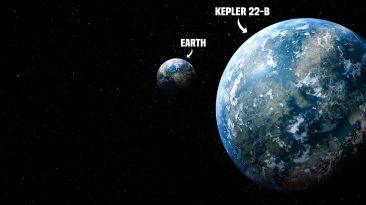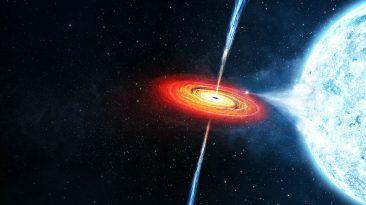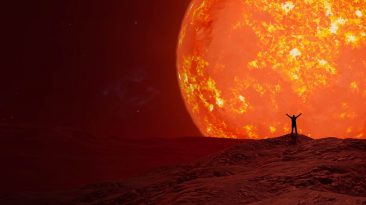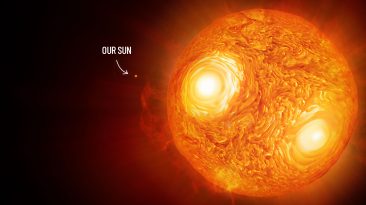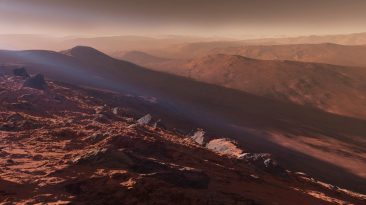It was an image that defined an era of space exploration. In 1969, an estimated 600 million people watched from their living rooms as Apollo 11’s Eagle lander touched down on the Moon. With one small step, the United States crossed the finish line of the Space Race. But what if this event never happened? What if we never landed on the Moon?
Could the Cold War have ended sooner? Would climate change be worse? And, would you be lost all the time?
In 1957, the Soviet Union successfully launched Sputnik, the world’s first artificial satellite, into orbit by creating rocket technology that defied the world’s expectations. This launch was the opening shot that started the race to be first on the Moon. And the United States began in last place.
As a response to the Soviet Union’s triumph, the United States created its space agency, known as NASA. Dedicated to spaceflight and scientific advancement, this agency employed hundreds of thousands of the most intelligent people on Earth to fulfill the goal of put landing two U.S. astronauts on the Moon, and getting there before the Soviets. But if those missions never happened, would NASA exist today?
A by-product of the Cold War, the space race wasn’t just about bragging rights. Whoever got to the Moon first might control the Earth later.
But if the Space Race never kicked into high gear, maybe the Cold War could’ve ended sooner. A battle between capitalism and communism that raged for decades, the Cold War was fought by proxy wars and espionage.
Lasting from the end of World War II to the collapse of the Soviet Union, this conflict affected every aspect of relations between these powerful nations, from foreign policy to movie sequels. And if these two nations weren’t competing for scientific and military supremacy via the Space Race, maybe some of those proxy wars would never have been fought.
During the height of the Cold War, in 1986, the stockpiles contained almost 70,000 nuclear weapons. But if the focus had not been on rocket technology, maybe the nuclear arms race would’ve come to a standstill. Of course, if that had happened, some of the technology we use today may never have been invented.
After a tragic fire killed the entire crew of the Apollo 1, NASA began developing highly resistant clothing that could withstand everything from liquid hydrogen to melted gold. And by collaborating with firefighters, NASA helped design breathing masks that had a wider view and were easier to wear. Without these innovations, firefighters and emergency response teams face greater risks, and they might be less likely to save your life.
OK, maybe that example is too extreme. But if you want to know how technology has advanced our shared culture, imagine life without your phone. Today, the microchip is the modern marvel that allows us to hold computers in our hands, instead of them being the size of basketball courts.
But before the microchip, we had the integrated circuit developed to streamline more electronic components into one chip. Created for the Apollo missions to the Moon, integrated circuits made technology more available to the public by shrinking the amount of space it needed.
Without the integrated circuit, the technology we carry in our pockets might still be hanging on walls. Without the integrated circuit, the technology we carry in our pockets might still be hanging on the walls. But what does that mean for the internet?
If there had been no trips to the Moon, it might have meant fewer trips to space. If those early test rockets had never launched, the satellite networks we have now, which are put into place by rockets, may not exist.
NASA developed vehicles powerful enough to carry objects over 36,000 km (22,000 mi) above Earth and put them in geosynchronous orbits. That means the satellites orbit Earth at the same speed as the Earth is rotating.
Without these satellites orbiting over fixed points, the communications network that exists today would only be a fantasy. That means no cat videos, baking fails, or What If’s.
And forget about GPS. The Global Positioning System links into an interconnected network of satellites to give accurate locations anywhere on Earth. With fewer satellites in orbit, this service may not exist for civilians, although the military would need precision targeting. This military need may still have led us to create GPS technology, although it might have taken longer to achieve it.
That might not be true for NASA, though. After all, the agency didn’t exist until after the Soviet Union launched its Sputnik. But if NASA didn’t have the Moon landing as a goal, its entire existence may have been in question. If we’re not trying to reach the Moon, why would we need this expensive space agency? And the technology invented to make spaceflight cheaper and more practical might all be theory instead of reality.
Reusable spacecraft like the shuttles would be as real as the starship Enterprise. We wouldn’t see the images of our Universe captured by the Hubble Telescope. It wouldn’t exist. And the knowledge about our world that we’ve gained over the last few decades would remain lost.
Without satellites monitoring weather conditions and showing us the real-time effects, we might not know the actual effects caused by climate change. Even advancements in healthcare might have been delayed.
To deal with the extreme temperatures of space, NASA developed liquid cooling and ventilation garments in 1966. This high-tech garment, designed to control your core temperature, is now being used by people with multiple sclerosis.
While this aspect of the Cold War began with the fear of a nuclear showdown, these two superpowers challenged each other in ingenuity and curiosity. Without this drive to explore beyond our world, we wouldn’t be talking about settling Mars now.
NASA even has plans to land humans on an asteroid. But if we didn’t have the skills and technology that allowed us to get to the Moon, we might not try something so complicated. Instead, we might try something less subtle.
Sources
- “How Technology From the Space Race Changed the World” Spadoni, Aldo. 2021.
- “20 Inventions We Wouldn’t Have Without Space Travel”. 2021. jpl.nasa.gov.
- “What If Humans Never Landed On The Moon?”. 2021. livescience.com.
- “Space Spinoffs: The Technology To Reach The Moon Was Put To Use Back On Earth”. 2021. npr.org.
- “Cold War Facts And Information”. 2021. Culture.
- “The Space Race: How Cold War Tensions Put A Rocket Under The Quest For The Moon”. Sandbrook, Dominic. 2019. BBC Science Focus Magazine.















